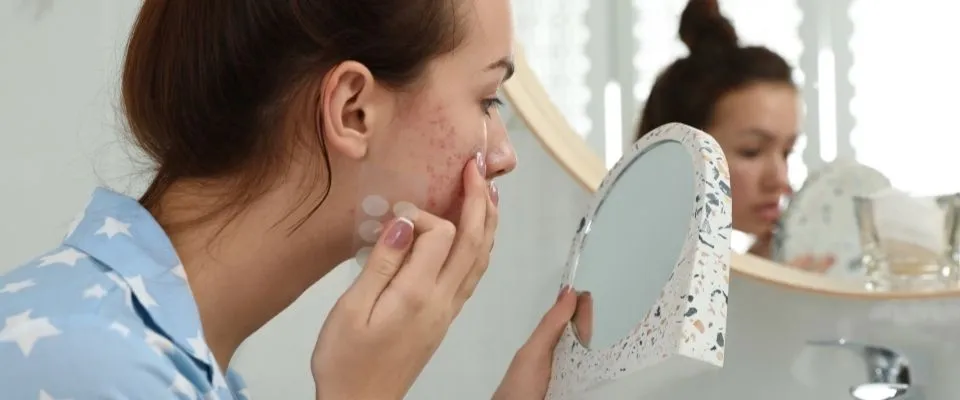Acupuncture is a traditional Chinese medicine practice that has been used for thousands of years to treat a wide range of health conditions. One area where acupuncture has shown particular promise is in the treatment of skin allergies. By targeting specific acupuncture points on the body, practitioners believe they can help alleviate the symptoms of skin allergies and restore the body to a state of balance. In this article, we will explore the power of acupuncture as a holistic approach to treating skin allergies. Now Wellness Clinic offers expert acupuncture services, providing individuals suffering from skin allergies with effective and personalized treatment options.
The Basics of Acupuncture
Before delving into how acupuncture can help with skin allergies, it is important to understand the basics of this ancient practice. Acupuncture involves the insertion of thin needles into specific points on the body known as acupuncture points. These points are believed to be connected by pathways known as meridians, through which vital energy, or qi, flows. By stimulating these points, practitioners aim to restore the proper flow of qi and bring the body back into balance.
How Acupuncture Works for Skin Allergies
When it comes to treating skin allergies, acupuncture works by addressing the root cause of the allergic reaction rather than just focusing on the symptoms. Practitioners believe that skin allergies are often a result of imbalances in the body's energy flow, which can manifest as redness, itching, and inflammation on the skin. By targeting specific acupuncture points related to the immune system and overall balance, acupuncture aims to correct these imbalances and reduce the body's overreactive response to allergens.
- Acupuncture can help regulate the immune system, which plays a key role in the development of skin allergies.
- By reducing inflammation in the body, acupuncture can help alleviate symptoms such as itching and redness.
- Acupuncture can also help improve overall skin health by promoting circulation and detoxification.
The Benefits of Acupuncture for Skin Allergies
There are several benefits to using acupuncture as a holistic approach to treating skin allergies:
- Non-invasive: Acupuncture involves the use of thin needles that are inserted into the skin, making it a non-invasive treatment option for skin allergies.
- No side effects: Unlike some medications used to treat skin allergies, acupuncture is generally free of side effects.
- Customized treatment: Acupuncture treatments are tailored to each individual based on their unique symptoms and constitution, making it a personalized approach to healing.
What to Expect During an Acupuncture Session
If you are considering acupuncture as a treatment for your skin allergies, it is helpful to know what to expect during a typical acupuncture session. Here are some key things to keep in mind:
Consultation
During your first visit, your acupuncturist will conduct a thorough consultation to gather information about your medical history, lifestyle, and symptoms. This information will help them develop a personalized treatment plan tailored to your specific needs.
Needle Insertion
Once your treatment plan has been established, your acupuncturist will begin the needle insertion process. The needles used in acupuncture are extremely thin, so the insertion process is generally painless. You may feel a slight tingling or dull ache as the needles are inserted, but this sensation is typically mild and dissipates quickly.
Acupuncture Points
Depending on your specific symptoms and constitution, your acupuncturist will target certain acupuncture points on your body. These points may be located near the affected area of your skin or on other parts of the body that are believed to be connected to the skin meridians.
Combining Acupuncture with Other Therapies
While acupuncture can be an effective standalone treatment for skin allergies, it can also be combined with other holistic therapies to enhance its effects. Some complementary therapies that may be beneficial for treating skin allergies include:
Herbal Medicine
Chinese herbal medicine is often used in conjunction with acupuncture to support the body's healing process. Certain herbs have been found to have anti-inflammatory and immune-modulating effects, which can be especially helpful for skin allergies.
Dietary Changes
Some skin allergies may be exacerbated by certain foods or dietary habits. Your acupuncturist may recommend dietary changes to support your skin health and reduce allergic reactions. Eating a balanced diet rich in nutrients and antioxidants can help strengthen your immune system and promote healthy skin.
Stress Management
Stress can be a major trigger for skin allergies, as it can weaken the immune system and exacerbate inflammation. Mind-body practices such as yoga, meditation, and tai chi can help reduce stress and support overall well-being, complementing the effects of acupuncture treatments.
Conclusion
Acupuncture offers a holistic and personalized approach to treating skin allergies by addressing the root cause of the condition and restoring balance to the body. By targeting specific acupuncture points related to the immune system and overall health, acupuncture can help alleviate symptoms such as itching, redness, and inflammation. If you suffer from skin allergies and are looking for a natural and effective treatment option, consider exploring the power of acupuncture as part of your healing journey.

